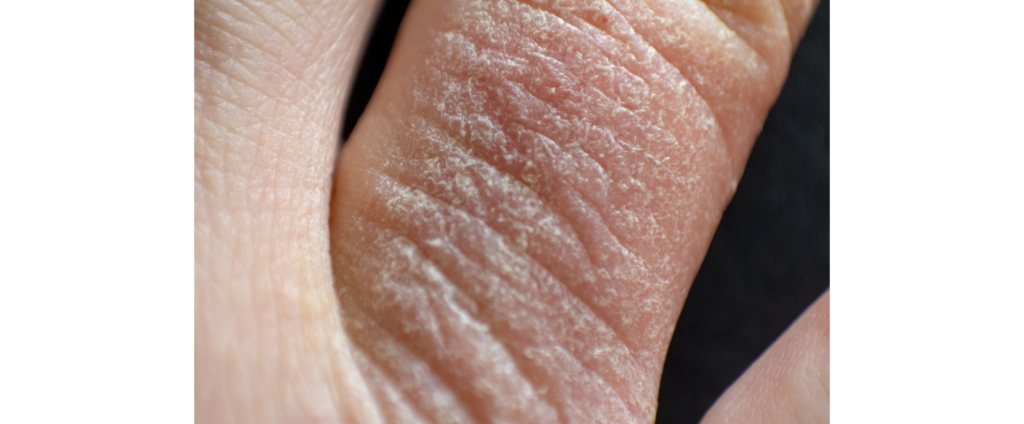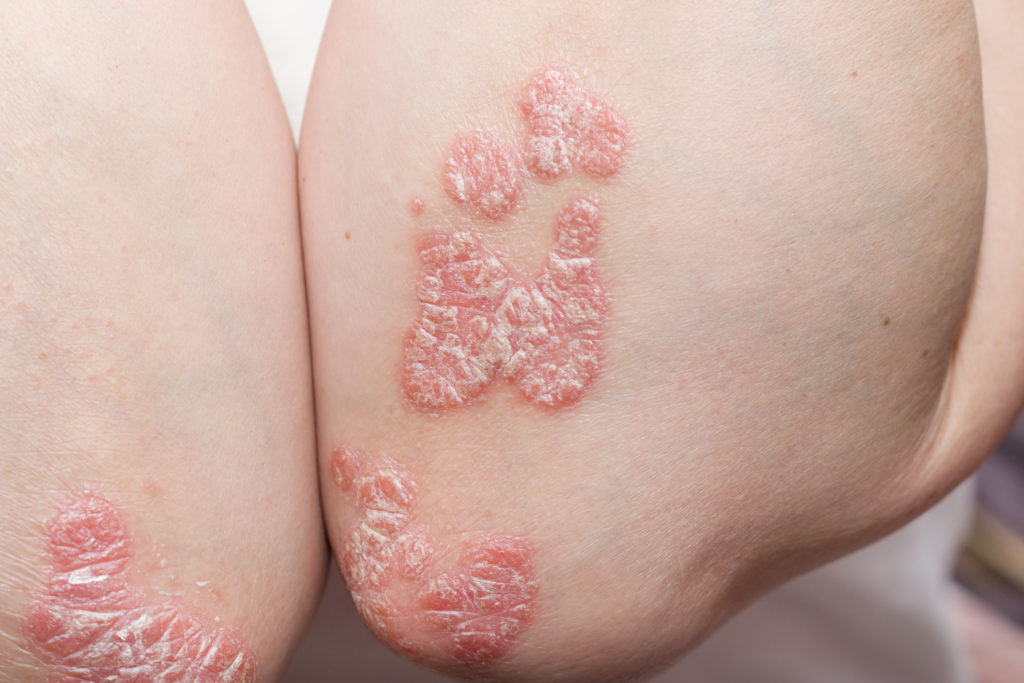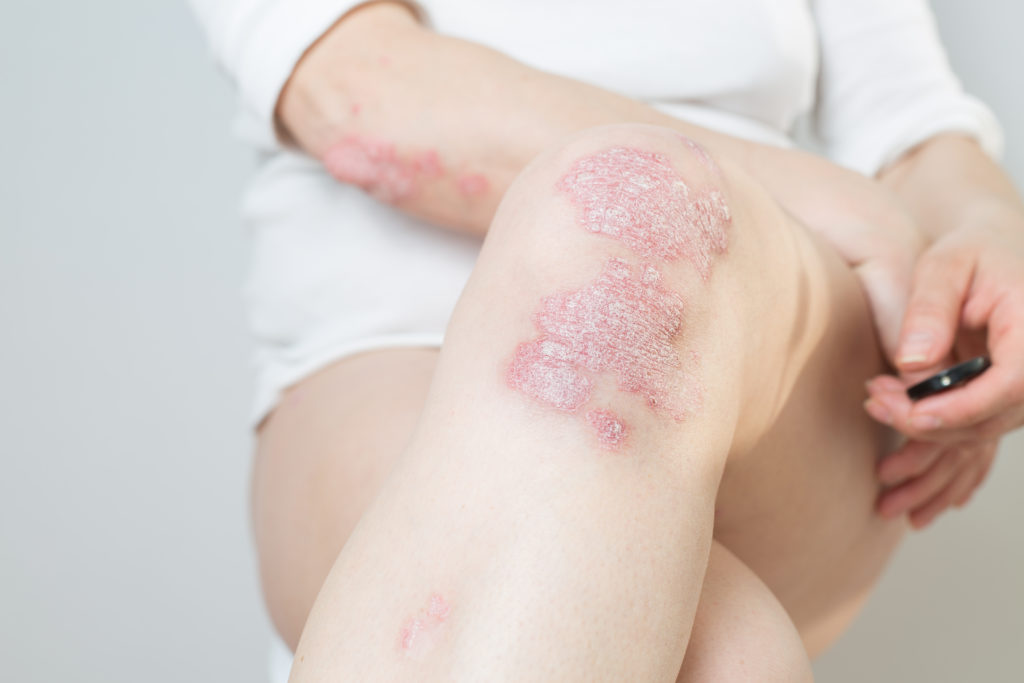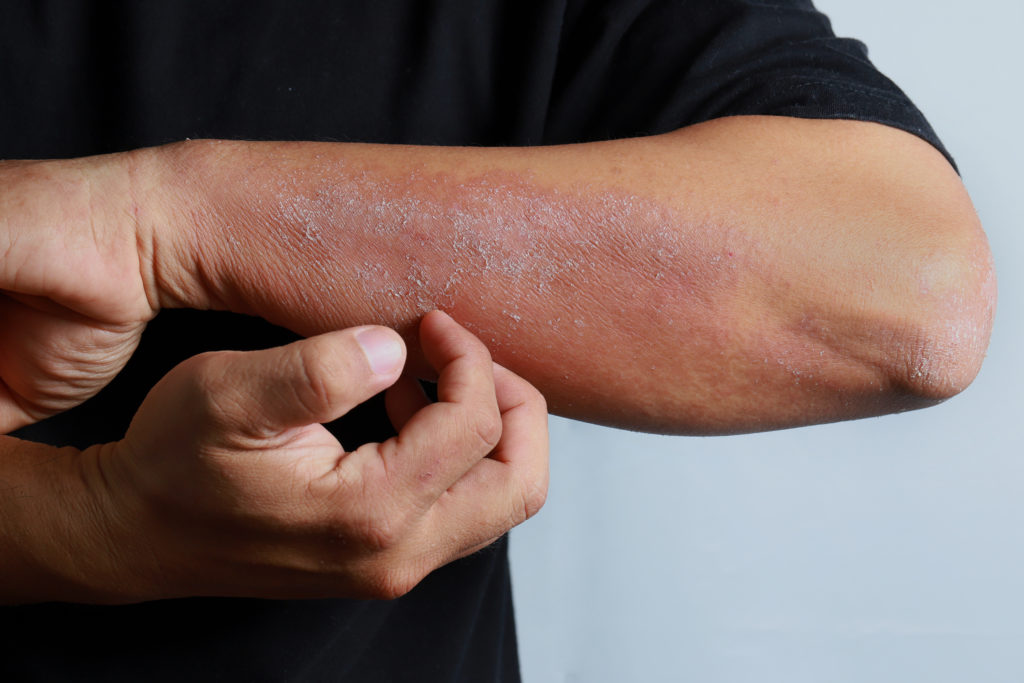
New research data suggests that there has been an explosion in the number of people experiencing eczema, dermatitis and psoriasis, has increased by at least 10 per cent in the last year alone.[1]
That’s according to a new research report – More Than Skin Deep: The Urgent Need To Address An Epidemic Of Skin Conditions -from Typharm’s Skin Life Sciences Foundation (SLSF) – a new information body to help bust skin issues and help educate on skin matters.

The research data detailed within More Than Skin Deep, found that 78 per cent of people just polled said they now suffer from skin problems which they believe are born out of the essential hand washing hygiene measures of COVID-19 as well as stress. Dry skin was detailed as the main skin trouble by 59% of those people questioned. A third (34%) noted they now suffer from cracked skin, while 30 per cent claimed to suffer from soreness and 16 per cent have been so badly affected that their skin has bled. Earlier data from the royal college of physicians showed that 54%[2][i]of the population were affected by skin issues.
Worryingly, the British skin foundation has warned that almost a quarter of children are now suffering from eczema on their hands as a result of more frequent hand washing.[3] Stress and anxiety are also important drivers for skin conditions and COVID-19 has brought a psychological toll that is likely to be fuelling the deterioration of skin health too.

The pandemic has also led to much higher levels of depression and anxiety,[4] a worrying increase in unhealthy levels of alcohol consumption[5] and additional weight gain[6] —all bad news for our skin and factors helping to drive what has become an epidemic within the pandemic.
Scientists are still unravelling the complex brain-skin connections and pathways which can activate a cascade of negative hormonal and inflammatory changes. But there is no doubt that stress can trigger, or exacerbate, skin flare-ups.[7]
GP, Dr Nisa Aslam from Typharm’s Skin Life Sciences Foundation says: “We were already seeing a significant increase in skin conditions but, when COVID-19 reached the UK, we saw an explosion in skin issues, largely a result of stress, anxiety, extra hand washing and use of hand sanitisers. And although we are now living with COVID-19 with restrictions easing, the skin health issues have continued to increase. Masks have also worsened problems, with 51% of those who took part in this new research reporting that face coverings have aggravated their eczema, dermatitis or psoriasis.”

Dr Aslam adds: “Handwashing remains a vital part of our battle against the COVID-19 as we live with it, so skin health problems will continue. Flare-ups should be treated quickly, using treatments prescribed by a doctor or healthcare professional. Topical steroids are sometimes needed to control flare-ups, and while they cannot be used daily for prolonged periods, these useful medicines are invaluable for many people with skin conditions such as eczema, dermatitis and psoriasis.[8]
“Finding the most effective therapy is often a matter of trial. There are a variety of skin treatment options across eczema, dermatitis and psoriasis from ointments, creams to steroid medicated tape, with new products coming through all the time. There is always scope for innovation and an important advance has been the development of new formats — such as medicated tapes — to help deliver steroids within a different format. Another has been intermittent treatment such as weekend or twice-a-week applications to achieve ongoing control without the issues involved with prolonged use.[9] As a result, it’s important to keep going back to your doctor, or dermatologist, for advice.”
More Than Skin Deep – sorting fact from fiction
The Skin Life Sciences Foundation supports Health Care Professionals with an interest in the eczema, psoriasis and dermatitis and works to raise awareness of skin health and effective skin health management. The foundation includes a group of independent, medical experts who take a special interest in skin wellbeing including GPs, dermatologist and pharmacists. It receives a restricted educational grant from the Typharm Group.
Typharm is a British life sciences group committed to finding solutions to a range of skin problems, particularly inflammatory conditions such as eczema, dermatitis, psoriasis and lichen planus. This expertise also encompasses wound care, and a range of topic products spanning creams, ointments, and medicated tape. See www.typharm.com for more information.